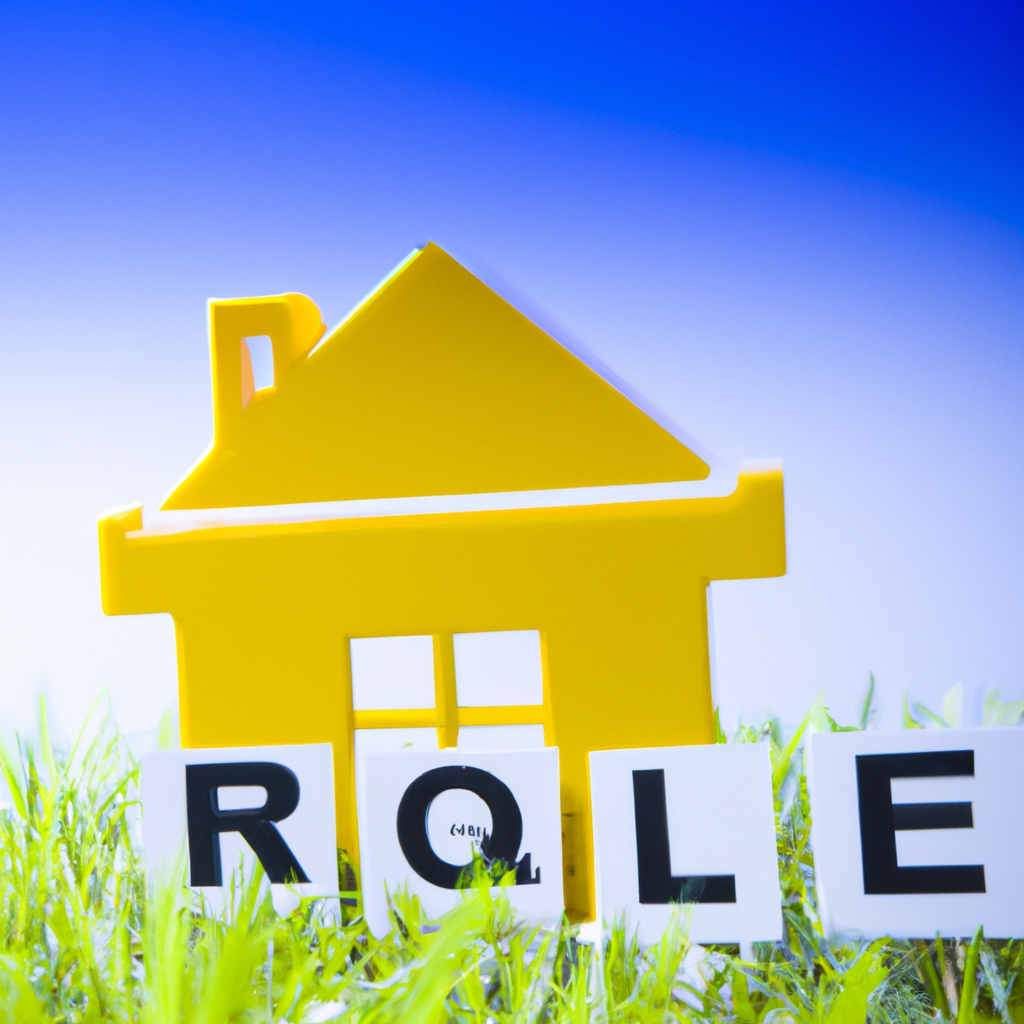In this article, we’ll be taking a look at the different ways you can invest in real estate and building your wealth through smart investments. We’ll go over how to line up your financing options, how to start slow with passive investing, and ways to take an active role in real estate investing. Plus, we’ll cover some additional tips for becoming a successful real estate investor. Read on to get started!
Introduction to Real Estate Investing
Real estate investing is a great way to build your wealth. It offers the potential for high returns and can be a very stable investment. However, it is important to understand the basics of real estate investing before you get started.
The first step in real estate investing is to find a good property. This can be done by researching different neighborhoods and looking for properties that are undervalued. Once you have found a few potential properties, you need to analyze them to see if they are a good investment. You should look at things like the location, the condition of the property, and the potential rental income.
Once you have found a few good properties, you need to finance your investment. You can do this by taking out a loan or by using your own money. If you use your own money, you will need to be prepared for the possibility of losing it all if the property doesn’t appreciate in value.
After you have financed your investment, you need to find tenants. This can be done by advertising in local newspapers or online. You should screen your tenants carefully to make sure they are reliable and will pay their rent on time.
Once you have tenants, you need to manage your property. This includes collecting rent, paying bills, and dealing with any maintenance issues that come up. It is important to be proactive in managing your property so that it doesn’t become a burden.
Real estate investing can be a great way to build your wealth, but it is important to understand the basics before you get started. With the right knowledge and strategy, you can be successful in real estate investing.
Benefits of Investing in Real Estate

When it comes to investing, there are many different strategies that you can use to grow your wealth. But one of the most popular and effective methods is investing in real estate.
There are a number of reasons why investing in real estate is a good idea. For one, it’s a physical asset that you can touch and feel, unlike stocks or mutual funds. And because it’s a tangible asset, it tends to be more stable in value than other investments.
Another benefit of real estate investing is that it offers the potential for high returns. With the right property and market conditions, you could see a significant return on your investment.
And finally, real estate investing can be a great way to diversify your portfolio. By adding real estate to your investment mix, you can balance out your risk and potentially increase your overall returns.
What Type of Real Estate Should I Invest In?
There are many types of real estate to invest in, and each has its own unique set of benefits and risks. Before you invest in any type of property, it’s important to do your research and understand the pros and cons of each type.
Here are some of the most common types of real estate investments:
Residential properties: These include single-family homes, duplexes, triplexes, and fourplexes. Residential properties can be a great investment because they’re always in demand. And, as the population grows, the demand for housing will continue to increase. However, there is also more competition in the market for these types of properties.
Commercial properties: These include office buildings, retail stores, warehouses, and industrial buildings. Commercial properties can be a good investment because they often have long-term leases with stable tenants. However, they also tend to be more expensive than residential properties and may require more capital to get started.
Multi-family properties: These include apartments, condominiums, townhouses, and other types of rental units. Multi-family properties can be a great investment because they offer higher potential rental income than single-family homes. They also tend to be less volatile than other types of real estate investments since there are usually multiple tenants involved. However, multi-family properties can also be more expensive to purchase and manage than other types of investments.
Vacation rental properties: These can be single-family homes, condo units, cabins, or other types of vacation rentals. Vacation rental properties can be a great investment because they often produce higher returns than other types of real estate investments. However, they also tend to be more volatile due to changes in demand and seasonality.
Self-storage facilities: These are facilities that store items for customers on a short-term or long-term basis. Self-storage facilities can be a great investment because the income is generally stable and there is less competition in this market than with other types of real estate investments. However, self-storage facilities may require more capital to purchase and it can be difficult to find tenants for them.
No matter what type of real estate you decide to invest in, it’s important to do your research and understand the risks involved.
Investing in real estate can be a great way to diversify your portfolio and potentially generate long-term returns. However, it’s important to keep in mind that all investments come with risk, so make sure you are comfortable with the level of risk before investing any money.
How Do I Get Started with Investing in Real Estate?
Investing in real estate is a great way to build your wealth. However, it’s important to understand the process before you get started. This guide will give you a step-by-step overview of how to get started with investing in real estate.
The first step is to understand your financial goals. What are you looking to achieve by investing in real estate? Are you trying to generate income, build equity, or both? Once you know your goals, you can start researching different investment strategies.
Next, you’ll need to find financing for your investment. There are a few options available, such as traditional loans, home equity lines of credit, and private loans. You’ll need to compare interest rates and terms to find the best option for you.
Once you’ve found financing, it’s time to start looking for properties. There are a few things to keep in mind when searching for an investment property, such as location, condition of the property, and potential rental income. You can search for properties online or work with a real estate agent who specializes in investment properties.Get started with a small investment.
When it comes to investing in real estate, it’s important to start small and gradually increase your investment over time. This will help you minimize risk and maximize your chances of success.
Once you’ve found the perfect property, it’s time to make an offer.
If your offer is accepted, you’ll need to complete due diligence on the property before closing. This includes getting a home inspection and ensuring that there are no hidden problems with the property.
After closing on the property, it’s time to start generating income from it! If you’re renting out
Be patient. Real estate investing is not a get-rich-quick scheme – it takes time and patience to see results. Don’t expect to make a fortune overnight; focus on building long-term wealth through smart investments.
It’s important to have realistic expectations when investing in real estate. Remember that there are always risks involved, so don’t expect to make money without taking any risks whatsoever.
Investing in real estate can be complicated, so it’s always a good idea to get help from an experienced guide. A qualified professional can help you make informed decisions and minimize your risk.
What Financing Options are Available for Real Estate Investors?
There are a number of financing options available for real estate investors, including traditional bank loans, private lenders, hard money lenders, and more. Each option has its own set of pros and cons, so it’s important to do your research and choose the one that’s right for you.
Bank loans are typically the most affordable financing option, but they can be difficult to qualify for if you don’t have great credit. Private lenders may be more flexible when it comes to credit requirements, but they usually charge higher interest rates. Hard money lenders can be a good option if you need funding fast, but they typically charge higher fees.
Once you’ve chosen a financing option, it’s important to shop around and compare rates from different lenders. Be sure to read the fine print carefully before signing any loan documents.
Step-by-Step Guide to Active vs. Passive Real Estate Investment Strategies
Assuming you’re starting with little to no money, there are two main ways to get started in real estate investing: through active or passive strategies.
Active strategies involve directly purchasing property and managing it yourself, while passive strategies allow you to invest in real estate without being a landlord.
Both have their pros and cons, but which one is right for you will ultimately come down to your goals, time availability, and risk tolerance.
If you’re looking to build wealth through real estate investing, here’s a step-by-step guide to help you get started with either strategy:
Active Strategy:
- Research the market and find a property that meets your investment criteria.
- Analyze the deal and make sure it’s a wise investment.
- Get financing in place and close on the property.
- Manage the property and tenants (if applicable).
- Keep an eye on the market and make sure your property is still a good investment.
- When you’re ready to sell, list the property and find a buyer.
- Close on the sale and collect your profits!
Passive Strategy:
- Research different types of real estate investments, such as REITs( Real estate investment trusts), private equity funds, or crowdfunding platforms.
- Find an investment that meets your criteria and that you’re comfortable with.
- Invest your money into the chosen platform or fund.
- Monitor your investment and track its performance.
- When you’re ready to sell, exit the investment and collect your profits!
Tips and Tricks for Becoming a Successful Real Estate Investor
As a real estate investor, there are a few key things you can do to ensure success.
First, it is important to understand the market and what trends are happening. This will help you make informed decisions about what properties to invest in. Having a good team in place is also important, including a reliable real estate agent and a knowledgeable mortgage broker.
Another key tip is to always be prepared for the unexpected. This means having enough cash on hand to cover any unforeseen expenses that may come up. Additionally, it is important to have a solid exit strategy in place so that you can sell your property if needed.
following these tips will help you become a successful real estate investor.
Must read: Ways to achieve financial freedom in 2023
Must read: Everything you needs to know about Home Loans
Must read: Top up Home loans
Conclusion
Investing in real estate is a great way to build wealth and create financial freedom. By following the simple steps outlined in this article, you can make smart decisions about your investments and start building your portfolio quickly. With patience, dedication, and the right knowledge of how to invest in real estate, you can achieve success as a real estate investor.
Must read: all about mutual funds
Must read: all about commercial vehicle loan
Must read: Loan against Property,how it works
Must read: Bueno finance loan app
Must read: Step by step guide to start a business
FAQ
Real estate can provide a steady income through rental properties, the potential for appreciation in the value of the property, and the ability to use leverage to increase the potential return on investment.
The value of a property can decrease, making it difficult to sell or refinance. Additionally, rental properties require ongoing management, and unexpected repairs and vacancies can negatively impact cash flow.
The value of a property can be determined by comparing it to similar properties in the same area that have recently sold, as well as taking into account factors such as the condition of the property, the current real estate market, and any improvements or repairs that may be necessary.
There are several ways to finance a real estate investment, including taking out a mortgage, using a home equity loan or line of credit, or using private financing.
Managing a rental property can include tasks such as finding tenants, collecting rent, and handling repairs and maintenance. You may choose to handle these tasks yourself or hire a property management company to do it for you.
The tax implications of investing in real estate can vary depending on how the property is held and how it is used. Rental income is generally taxable, and deductions may be available for expenses such as mortgage interest, property taxes, and repairs. It is advisable to consult a tax advisor for specific tax advice.

